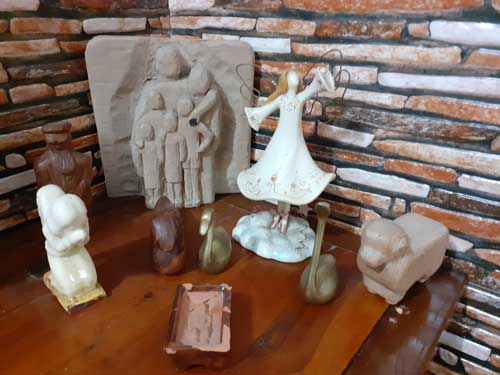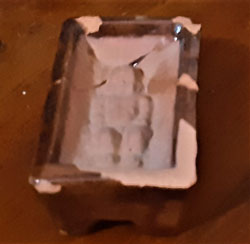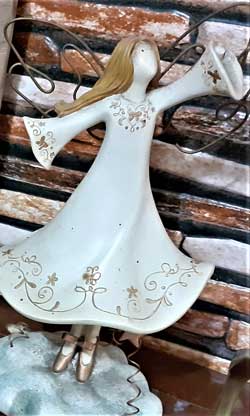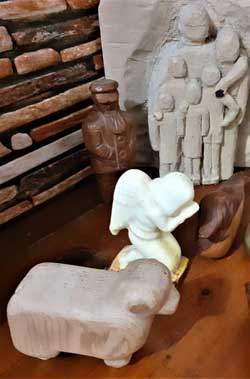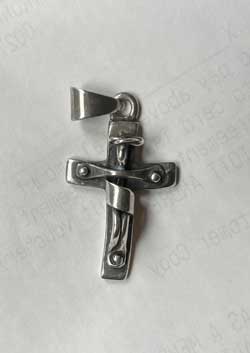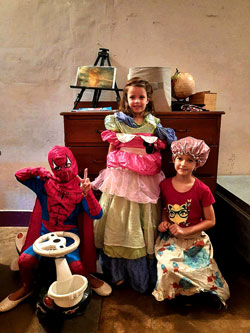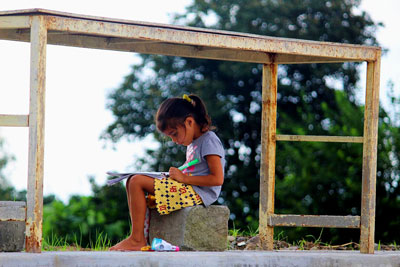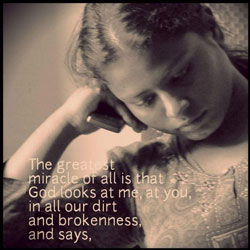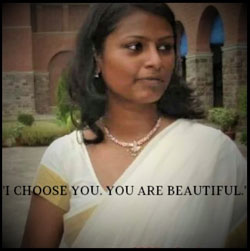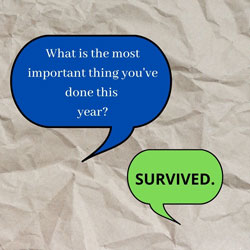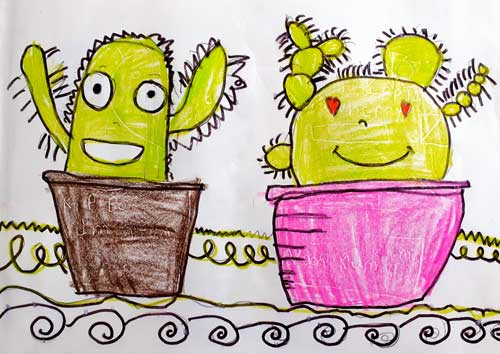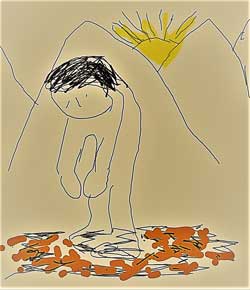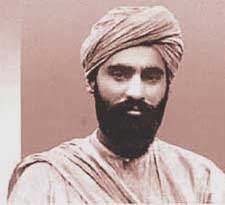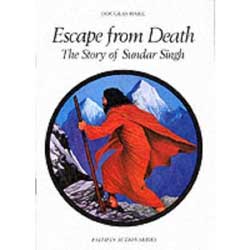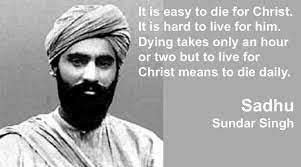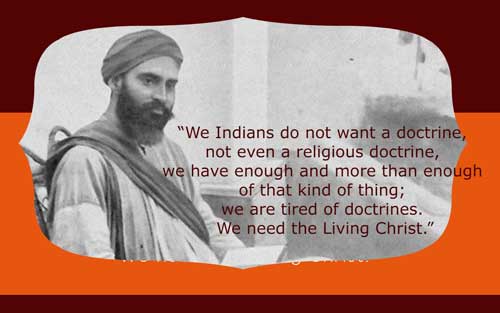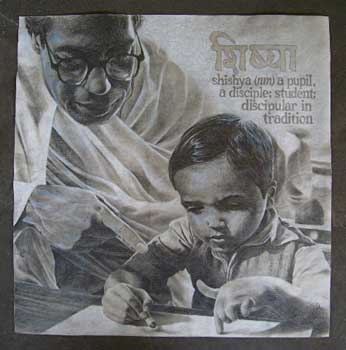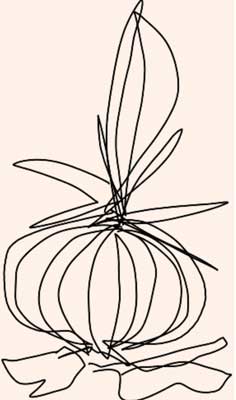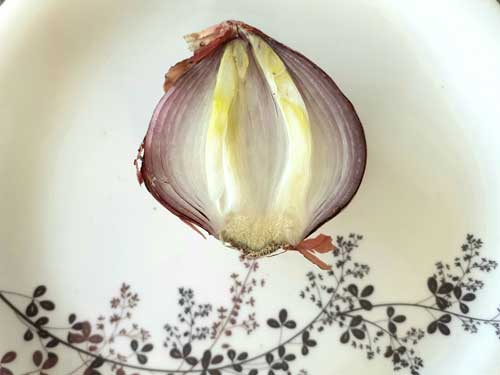There is a vista beyond the cloud.

Every experience does it’s work in us; experiences can be like war. My father’s nightmare experience was like venom from a fire breathing dragon. The humongous dragon obliterated the entire horizon with the madness of hell and brought death. Dad’s thoughts, his joy, his work, and his family were all in that hell. It left him as good as dead. Nothing could be the same again. I’m his daughter. I know. When life becomes abominable, you too, become abominable and hate yourself. You are two people. One of you is the crowd pleaser and says the right things, somehow managing to keep the ship from completely sinking. The other is hidden deep inside, and keeps grief, bitterness, and confusion alive.
Dad’s heart resounded with shame; he’d let Mom down. He was not there when she needed protection. It haunted him —but a man with a gun? Who’s to say what may have happened had Dad been there too? We may have become orphans.
One brisk spring morning when Dad was miles away and we children were in school, an intruder entered our house and attacked Mom. She put up a good fight but was brutally murdered. My father was away, working in another state. Her stalker had picked the timing carefully. No one was nearby.
Our youngest sister arrived home from school first, walked in and found her mother lying in a pool of blood. My sister was never the same. None of us were. Life changed. No one could take that memory away from my sister, or from any of us. It was tattooed into our souls. Our earnest desire to help our sister was itself helpless, for we were boxed into an environment of stunned emotions. We were confused, angry and helpless.
Dad needed an escape route and diluted his emotions by writing:
Who Am I?
I am a pitiful lump turned tragic,
placed by unnoticed cosmic error
at point often crucial in the lives of others, rising to confront weakness and strength as though with strength, but settling, later, like gull on troubled water, more yet like
sparrow stung by blowing sand, clinging
to life’s branch while yet longing for
the peace of release,
forgetting those who have loomed suddenly to lend brief dignity to the dream
of survival, a moment of grandeur
to a lonely quest to be,
to be a man,
to matter.
~Dad
Many people took counsel from Dad. He knew there was a way to get from the pit of despair to that beautiful, rainbow-colored vista of hope. But while trapped in the pit he was unable to find the escape route. A woman named Jerrie had been trapped in her own pit, but she found the escape and climbed out.
Hope
There is a vista beyond the cloud
Unseen by those who labor in its shadow
by those who grieve,
by those who hate,
by those who struggle in the storm.
It’s reaches stretch beyond the imagination Of even those whose vision is not obscured.
It is they who must venture into the shadow
With the poetry of hope.
~Dad
Dad, the psychiatrist, was just a pitiful lump of clay when Jerrie found him. Jerrie was his secretary. When she was only 20, she became paraplegic. She faced death in her hospital room. Jesus came in, and she was healed. She never got up and walked again, but Jerrie always lived fuller than most people who can walk. Miraculously, she forged her way out of the dark valley and up to the mountain top where she firmly, resolutely, grabbed the lifeline of hope that Jesus had thrown to her in the hospital room.
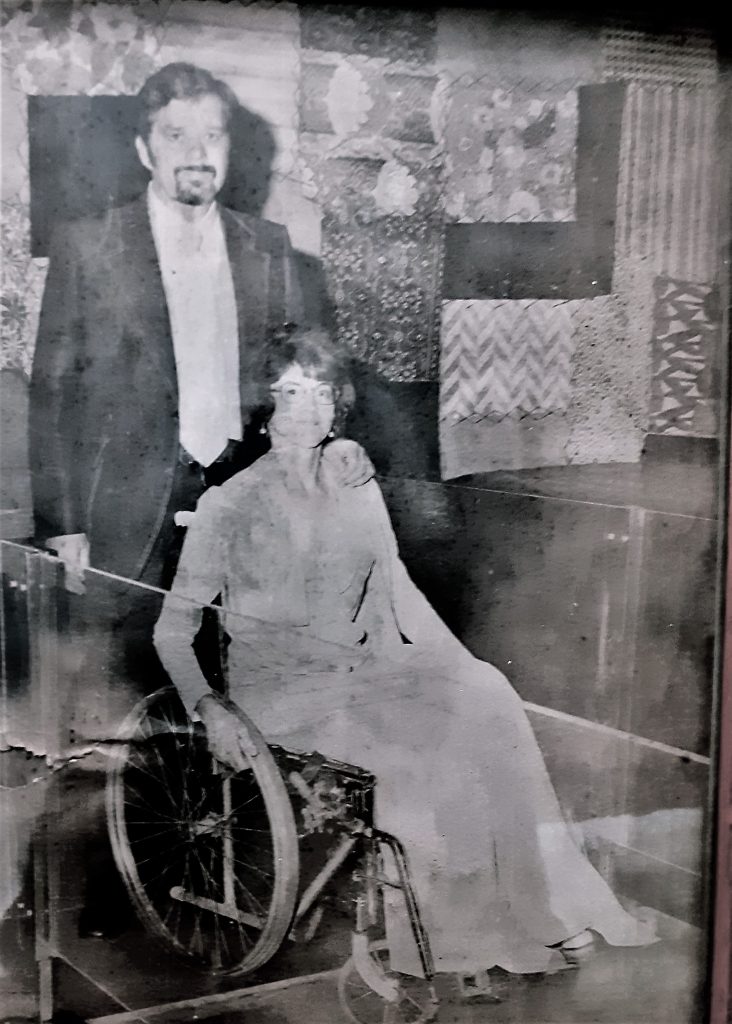
Dad and Jerrie began a close relationship on a normal workday, but in an abnormal way. Jerrie went about doing her secretarial work. She first knocked on Dad’s office door, and hearing no answer, rolled herself in. Assuming he was out, she put some patient files on his desk. His desk was cluttered and in disorder. She rolled her chair around the desk to clean it; that’s when she spotted dad. He was curled up in a ball under his desk, crying. She was startled, as was he. Professionals like Dad, always know the answers to everyone’s problems, but now, Dad was completely lost and confused. No one had recognized the depth of his despair.
That was the beginning of an intimate relationship. Jerrie had an infinite amount of wisdom and empathy. She’d already come out of her valley of death victorious. Her incredible courage, determination, and hope —her everyday armor, was the showcase of her character.
She helped Dad wage war against the pain and depression that could have overtaken him. Together they went to God. Together they understood that God had never deserted them, even when the going seemed more than one can bear. God never promised happiness; he guaranteed suffering.
James 1:2,3
My brothers and sisters, think of the various tests you encounter as occasions for joy. After all, you know that the testing of your faith produces endurance.
Until you do really suffer, you’ll never understand the great value of endurance. Suffering is never easy, but through it, mercy and forgiveness were unearthed. Because Jesus walked his own dark valley, He’s able to help us get through ours. He, God, had no privileged life; his life was like ours.
You are the Best
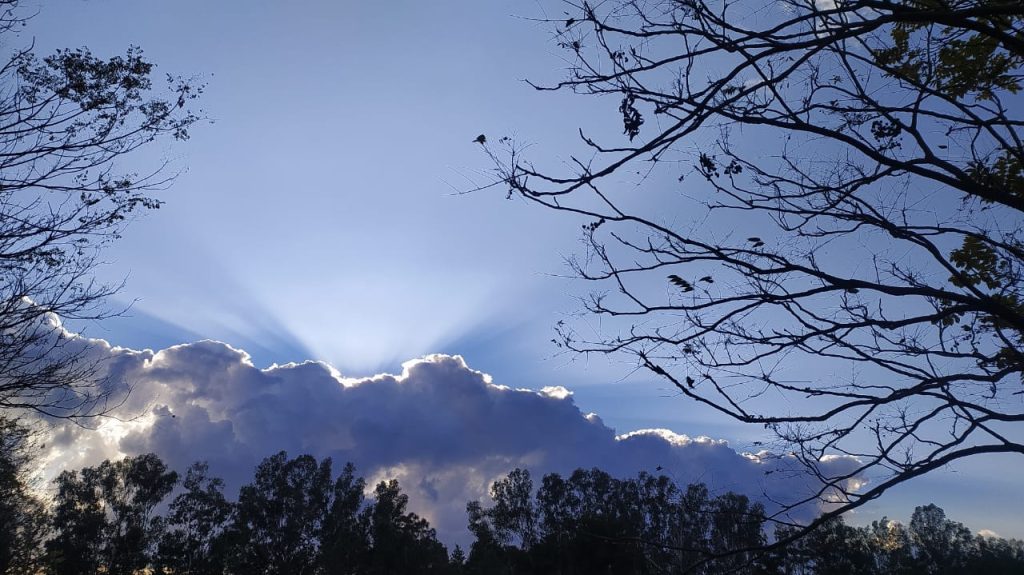
Phil. 1: 29
God has generously granted you the privilege, not only of believing in Christ but also of suffering for Christ’s sake.

